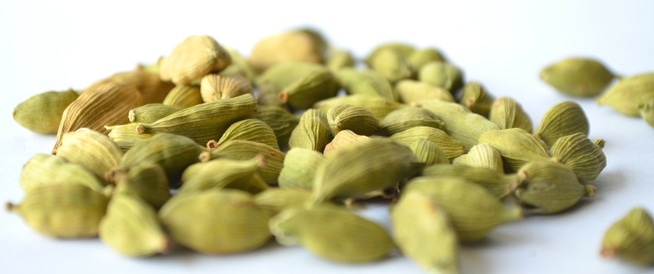The benefits of cardamom and its side effects
Although most believe that cardamom is just a flavor for food, cardamom has many benefits and important for health, continue reading the article to know it.

Let's get acquainted with the following on the benefits of cardamom for health, its side effects, and all the important information about it:
The benefits of cardamom are many and amazing
Cardamom has been known for its medicinal benefits since ancient times, in addition to being one of the most common spices. Cardamom has high nutritional values that have been linked by many studies to a large number of health benefits.
Here are the most prominent health benefits of cardamom in the following:
Helps prevent cancer
In a 2012 study published online, it was shown that cardamom regulates gene activity in melanoma cells, and reduces the activity of genes associated with the spread and growth of cancer.
It was also found that there are compounds in cardamom that fight cancer, and these compounds have the ability to kill cancer cells, and prevent the growth of new cancer cells.
Promotes digestive health
Cardamom contains a group of fibers and chemicals that are very beneficial to the digestive system, as they work on the following:
- Helps treat stomach problems, intestinal cramps and bloating.
- It helps increase the movement of food through the intestines, which helps prevent constipation and promotes excretion.
- Promotes the softening of the stool, and thus ease of excretion.
Helps lower cholesterol
Cardamom is rich in dietary fiber, which gives it an important property, as fiber contributes significantly to reducing harmful cholesterol levels in the body, and promoting cardiovascular health, which contributes to the prevention of strokes and strokes.
Contributes to weight control
Cardamom's high content of dietary fiber may play a role in promoting weight loss, as every two tablespoons of cardamom contains 3.2 grams of dietary fiber, which contributes to covering approximately:
- 13% of women's daily fiber needs.
- 8% of men's fiber needs.
This means increasing the feeling of satiety and fullness of the stomach after eating meals in which cardamom is included, and facilitating the process of digestion and excretion, and it is worth noting that cooking cardamom contributes to enhancing the benefit of the dietary fiber it contains.
Contains a lot of iron and manganese
Cardamom is a good source of iron and manganese, which are important for many vital processes in the body, which are as follows:
- They help in cellular metabolism.
- Iron helps prevent anemia and provides oxygen to cells.
- Manganese contributes to maintaining bone health.
Treats nausea and vomiting
Eating cardamom helps prevent some unpleasant symptoms, such as: nausea and vomiting, especially that can occur after surgery and anesthesia.
It has been found that applying a mixture of cardamom, ginger and some essential oils on the neck for 30 minutes after anesthesia of surgical procedures contributes to relieving side effects and some symptoms such as: nausea and vomiting.
Improves smell and oral health
It was found that one of the benefits of cardamom is its ability to improve bad breath, which is an old and traditional recipe. It is possible to chew a little cardamom after a meal to improve the smell of breath.
The use of cardamom helps prevent bacteria and germs that may cause tooth decay and any other problems in it.
Some chewing gum manufacturers use cardamom in their gummies due to its beneficial properties towards the mouth.
Cardamom has other benefits
There are many other benefits of cardamom, but they need more evidence and studies to confirm them, and the most prominent other benefits of cardamom are as follows:
- Treats symptoms of Irritable Bowel Syndrome.
- Increases loss of appetite.
- Treats colds, coughs, bronchitis, and inflammation of the mouth and throat.
- Treats urinary problems.
- Lowers blood sugar levels.
- Protects the liver from diseases.
- Treats insomnia and prevents depression.
- Improves blood flow and circulation.
The nutrients in cardamom
Cardamom is low in calories, as one serving of it, any two tablespoons, contains about 36 calories.
Cardamom is also a rich source of many important nutrients, such as: dietary fiber, some important minerals, and anti-cancer compounds.
Cardamom side effects
The benefits of cardamom are obtained if it is taken in safe and normal quantities, but excessive consumption may affect the following categories:
- Pregnant and breastfeeding women: There is insufficient information and studies about safe quantities for consumption by these groups, and their side effects on them.
- People who have gallstones: Eating cardamom in large quantities may lead to colic, and increase cramps for those who suffer from gallstones.

Post a Comment
0 Comments